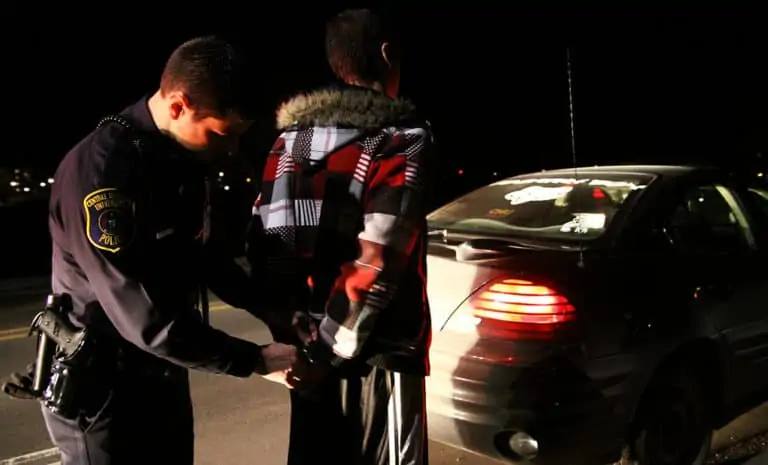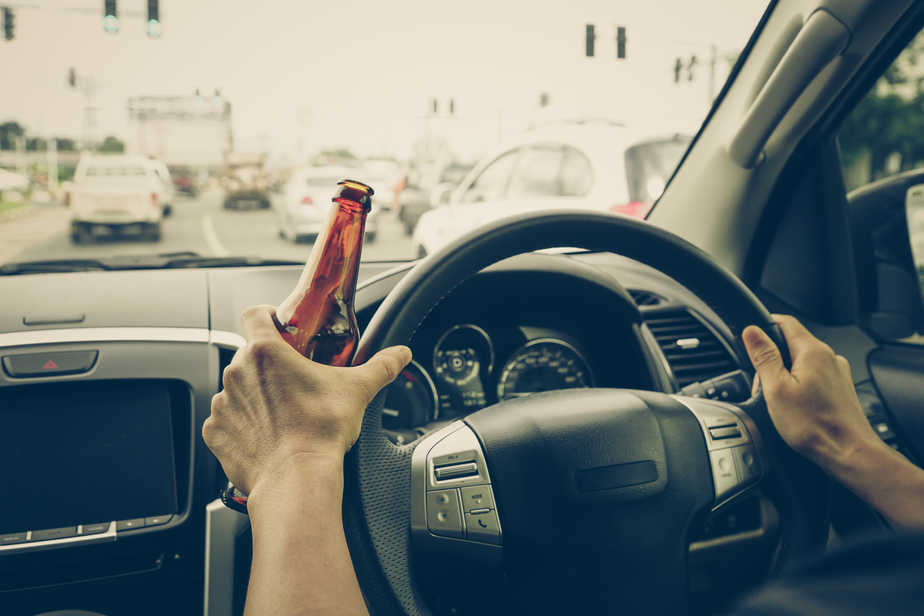Butler Law Firm
"The Houston DWI Lawyer"
30+ Years As A Houston DWI Attorney
Board Certified in DUI Law by
the DUI Defense Lawyers Association
Butler Law Firm
"THE HOUSTON DWI LAWYER"
30+ Years As A Houston DWI Attorney
Board Certified in DUI Law by
the DUI Defense Lawyers Association




Why Choose us?



The Houston DWI Lawyer Is Committed to Protecting Your Future!
The Houston DWI Lawyer Is Committed to Protecting Your Future When You Need It Most!
How Can The Butler Law Firm
Help With Your DWI In Houston?
How Can The The Butler Law Firm Help With Your DWI In Houston?

Were You Charged With A DWI?
Whether it’s your first offense, or if you have previously been charged with DWI, we are here and ready to help you every step of the way. The Butler Law Firm is focused on one area of the Criminal Law, and that’s DWI Defense. Let us use this experience to work toward achieving your desired result. Our goal is to “hit the reset button”, and help you return your life back to where it was before you were charged with DWI.
OUR FIRST STEP IS TO REQUEST AN ADMINISTRATIVE LICENSE REVOCATION OR “ALR” HEARING TO SAVE YOUR LICENSE FROM SUSPENSION – BUT WE ONLY HAVE 15 DAYS FROM THE DAY YOU WERE ARRESTED TO MAKE THAT REQUEST.

We’ll Fight Your DWI For You.
Facing DWI or DUI charges? You’re not alone. We’re here to support you. Meet The Butler Law Firm, a highly qualified professional legal team that specializes in DWI cases. With our extensive experience and expertise, The Butler Law Firm – The Houston DWI Lawyer, will guide you through the legal process, fight for your rights, and work towards the best possible outcome. You don’t have to navigate this challenging situation by yourself. Trust The Butler Law Firm to provide skilled representation and support throughout your journey. We are committed to helping you through this.
With over 30 years of experience fighting only DWI cases – We know DWI Defense, and are here to help you today!

Don’t let your DWI or DUI charges threaten Your Life!
There may be options to get your charges dismissed without having to go to trial, saving you thousands of dollars in fees and saving countless hours of your time going back and forth to court. We realize that you weren’t planning for this interruption in your life and will work diligently to seek a positive resolution of your case, in as little time as possible.
When it comes to your life, nothing is more important than security, comfort, and happiness. Don’t let your DWI or DUI charges threaten that.
With over 30 years experience fighting only DWI cases in Texas – The Butler Law Firm knows DWI Defense, and are here to help you today!

THE BUTLER LAW FIRM WILL THOROUGHLY INVESTIGATE YOUR CASE
Our process begins by carefully and meticulously analyzing all of the evidence in your case, including the offense report, and all police dashcam videos, bodycam videos and police station videos, including any videos of the breath test or the blood draw.
Reviewing this evidence can take many hours and even days to review. But this work must be done to effectively defend your case. After that, any breath or blood test records should be carefully reviewed to ensure proper procedures were followed, and to develop evidentiary challenges to that evidence. We know the science of breath and blood alcohol testing and we know the procedures that must be followed to prosecute your case.
Our record of success is a testament to hard work, tenacity and creativity in forming our defense for any DWI or DUI case in Houston, Harris County, Fort Bend County, Montgomery County, and beyond.
With over 30 years experience fighting only DWI and DUI cases in Texas, The Butler Law Firm – “The Houston DWI Lawyer” knows DWI Defense, and their DWI attorneys are here to help you every step of the way!

Choose Unmatched Expertise
Your Premier Houston DWI Lawyer
Experience Unrivaled Legal Defense From An Attorney With 30+ Years As A DWI Attorney In Houston, who is Board Certified as a DUI Law Specialist by the DUI Defense Lawyers Association.
With over 30+ years of DWI criminal defense experience, Jim Butler is a highly respected attorney and an expert in Houston for DWI defense. Throughout his extensive career, Jim has dedicated himself to helping clients protect their rights, livelihoods, and futures in the face of DWI charges.
Jim’s wealth of experience sets him apart as a trusted advocate for DWI and DUI charges in Houston. Over the years, he has assisted numerous individuals in avoiding the severe consequences that can accompany DWI convictions, such as job loss, license suspension, and other detrimental impacts on their lives. Jim’s reputation as an esteemed criminal defense attorney and expert DWI defense lawyer stems from his commitment to helping clients safeguard their rights, livelihoods, and futures.
Jim does not condone drunk driving. Instead, he focuses on defending those who may have been unjustly arrested and believes everyone deserves a fair chance to protect their rights and interests.



Securing Your Future With Houston's Renowned DWI Defense Attorney
Fighting for Your Rights
Navigating the complexities of a Texas DWI case is no small feat, and when facing DWI charges, the potential consequences can be daunting. The stakes are high when you are up against a DWI or DUI charge. Facing license suspension, strained relationships, and the risk of imprisonment can cause anxiety, and sleepless nights, but it doesn’t have to! When it comes to defending your rights and securing peace of mind in these trying times, Jim Butler, “The Houston DWI Lawyer”, is your beacon of hope.
Jim’s unwavering dedication to you and your loved one’s, and his intricate attention to detail is what set’s Jim apart, and you can rest assured that that your DWI or DUI criminal charges are always being addressed to ensure the highest likelihood for a successful outcome. He is dedicated to safeguarding your rights through every step of the legal process. This is why having an experienced attorney like Jim Butler, is crucial, so you can rest easy and know that an expert DWI attorney with over 30+ years of experience, taking ONLY DWI cases, is the bull who will be going to bat for you in DWI case!
With his decades of DWI defense experience and unwavering dedication, he will tirelessly advocate for your rights and work towards the best possible outcome. Jim’s #1 focus is to ensure that any DWI or DUI criminal offense charges have the absolute best chance of a successful outcome and that all of your rights are protected through the process of law.

Your Peace Of Mind Matters
Navigate DWI Charges With Confidence
Take the first step towards reclaiming control, and discover the unprecedented expertise of The Butler Law Firm by scheduling a free consultation today! With Jim’s seasoned guidance, you can trust that your DWI case will be handled with the utmost care, attention, and skill, ensuring the protection of your rights and a strong defense strategy tailored to your unique circumstances.
Don’t let your world crumble under the pressure of a DWI charge. Reach out to The Butler Law Firm today for a free consultation and experience the difference that Jim Butler’s expertise and dedication can make in your life. Your future, your livelihood, and your peace of mind depend on it.
Call The Butler Law Firm today for a free consultation.

Click The Button Below To Schedule A Free Consultation!
Call The Butler Law Firm Today To Schedule A Free Consultation
three steps to success
The Butler Law Firm will handle your DWI case every step of the way, to ensure you get the best possible result, with as little stress as possible.
Navigating the legal world, especially when it comes to your future, can be a scary thing. Let The Butler Law Firm handle every step for you from A-Z to ensure you get the best result possible with as little stress as possible.
01
Learning about how we can help
Every case is different. Our team will take the time to learn your unique issues and concerns and ensure that we provide counsel and protection that meets your needs, and will lead to the best outcome for your case.
02
Gathering All Of The Evidence
Your DWI defense team will review the evidence the State of Texas intends to use against you. At the Butler Law Firm, we take the time to go through all of the evidence, leaving no stone unturned, looking for issues we can use in your DWI defense. There are rules and procedures that the State must follow to use that evidence against you. The Butler Law Firm makes sure that they follow those rules.
03
Fight For You
in Court
After all of our preparation and gameplan is in place, our team will work tirelessly to fight your cause. On top of which, we’ll keep you in the loop at all times to understand what’s to happen next and what to expect.
Do You Have Any Questions About Getting A DWI In Texas?
Most think that it’s necessary to register a blood alcohol level of .08 to be charged with DWI. Many find it shocking that this is not always the case.
If the police officer can demonstrate the driver is experiencing impaired driving ability through observation, it may be enough to charge the driver. Some examples are:
- Swerving a vehicle to correct its course
- Driving in the middle of 2 lanes instead of remaining in one.
- Nearly hitting something or someone.
- Hitting the brakes erratically.
- Making a right turn at a stop sign or red light without coming to a complete stop. Also known as a rolling stop.
- Being too cautious or driving too slowly.
- Taking a turn too narrowly or too widely.
- Allowing the vehicle to drift from side to side on the roadway.
It is possible to lose your driving privileges for 90 days and up to 2 years. For those who hold a commercial driver’s license, any refusal or failure to take a breath test could mean your commercial driving status is revoked for a period of 1 year. In this situation, the officer making the arrest can take your license and issue you a special temporary permit that comes with a notice of suspension. Should this happen, it is necessary to request a hearing on the matter within fifteen days or it results in automatic suspension 40 days following the arrest.
This only represents a couple of the steps in the process of law regarding the matter. As you can see, without the help of an experienced attorney, it is highly likely you will not know how to proceed in the most effective way to get the results you hope for. At Butler Law office, Mr. Butler is an experienced attorney in Houston that understands the complexities of the criminal charge of DWI. Mr. Butler’s law firm has defended hundreds of people charged with this crime. His firm will take you through the process step by step and keep you well informed along the way. His office will serve as a counselor to help you understand the process along its sometimes long and upsetting path. As well, this firm will make sure your rights are fully protected.
Butler Law will ensure that procedures were followed to the strictest letter of the law and any evidence collected was processed as required by law. Butler’s Houston-based law firm will fully review the case with the District Attorney’s office to see what options are available in the case.
Meet Our Legal Team
With 30+ years of experience as Houston’s renowned 100% DWI defense law firm, fighting DWI cases in The Greater Houston Area, Harris County, Fort Bend County, Montgomery County, and the surrounding area, the Butler Law Firm knows DWI defense and is here to help you today.
Jim is the owner of this Houston-based criminal law office. Jim will do everything possible under the law to resolve the issue in the best possible way for his client. Contact them immediately for a free consultation.



Contact The Butler Law Firm Today
Mr. Butler is the owner of this Houston-based criminal law office. Mr. Butler will do everything possible under the law to resolve the issue in the best possible way for his client. Contact them immediately for a free consultation.
Free Case Evaluation
If you are charged with DWI/DUI, you need an DWI attorney whose law practice is solely DWI Defense. It’s all we do. DWI cases are highly complex and involve issues of law and science that many lawyers aren’t familiar with.
At The Butler Law Firm we routinely challenge Breath and Blood tests. We will work hard to see that our clients receive justice – from fighting to save your Texas driver’s license, to fighting for an acquittal or a dismissal of your charges – The Butler Law Firm has your best interest at heart. Along with being a Fort Bend DWI lawyer, The Butler Law Firm caters to all of Houston and greater surrounding areas! let Jim give you a free consultation! You will be more than happy you did!
‘This law firm dedicates its sole time and energy to focus on DWI cases, and helping people like you and me get our lives back. With years of experience focused on this particular branch of law, I can honestly say Jim and Kristen are the only people to call when you get in unfortunate trouble.’
Fill The Form Out Below to Claim Your Free Case Evaluation
Full Service DWI & DUI From An Expert Houston DWI Law Firm!
Find out the ways we help beat your DWI/DUI while delivering the best results possible for your drinking and driving case in Houston.
DWI Assistance
DUI Assistance
Case Dismissals
Preemptive ALR Hearings
Learn All About Our Attorneys
Meet The Partners
three steps to success
We Will Help You Every Step Of The Way
Lorem ipsum dolor sit amet, cotns ctetur all of the adicing elit, sed do eiusmod tempor ale dunt ut labore et dolore magna aliqua Mauris amet.
01
learning about all your legal issues
02
Pair you up with the Perfect Attorney
03
Fight For You
in Court
we will assist you in any issue and conflict
Client Testimonials
What People Say About Us





You Deserve One Of The Best DWI Lawyers In Houston!
With More Than 30 Years Of DWI Criminal Law Experience Fighting DWI Charges, The Butler Law Firm Knows What It Takes To Fight Your DWI Case!
Honors And Awards









The Butler Law Firm Has A Lot Of Experience With DWI Cases

State of Texas vs Penaflor
The Charge: Client’s car broke down on the highway. When an officer arrived on the scene, she alleged he was backing up on the Beltway. The

State of Texas vs Chanaba
The Charge: Client was leaving Twin Peaks restaurant, he was speeding, going 75 in a 65 mph zone. He failed Field Sobriety Test’s at the scene

State of Texas vs Ruben
The Charge: Client was pulled over after an officer witnessed him purchasing alcohol & placing it in the front seat. A DWI Task Force officer was














